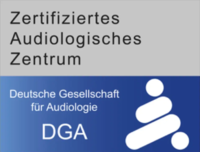About the disease
Tinnitus is characterized by an almost constant ringing in the ears. In some cases, suffers may hear noises instead of ringing. According to Mayo Clinic, this condition affects 1 out of 5 people at some point in their life. Tinnitus is always a secondary condition that indicates another problem.
As we grow older, the structure of the inner ear develops age-related changes that can cause tinnitus. People older than 65 years are more commonly affected by tinnitus than any other age group. In young people, tinnitus can develop as a result of trauma or injury. People who are exposed to loud noises all the time, such as DJs and factory workers, are at risk of developing tinnitus. Smokers and high blood pressure patients are also in the high risk group.
Ringing usually resolves on its own after some time or subsides after successful treatment of a head injury. In some cases, ringing may be heard only occasionally, if the individual is experiencing problems with their circulatory system, for example. Some people may hear ringing when standing up abruptly or moving quickly. A person with a disorder of the circulatory system may hear ringing when waking up or going to sleep.
There are two main types of tinnitus: subjective and objective. In the first type, only the patient can hear the ringing inside their head, even though there is nothing near them making a sound. The auditory nerve sends the wrong signals to the brain, which interprets them as ringing or a roaring sound. In the second type of tinnitus, the doctor can also hear the ringing during a general examination. This is an indicator of problems with either the blood vessels or the middle ear. Ringing can become noticeable as a result of an infection and it should disappear again once the infection is treated.
In severe cases, an individual may hear ringing all the time. It is then a serious problem of the circulatory system and needs to be treated as soon as possible, to avoid complications. Sometimes, ringing in the ear can be an indicator of a head tumor, which creates pressure on the ear. If severe headaches accompany the constant or frequent sound of ringing in the ears, it is advisable to get checked over by a doctor.
Symptoms
- Ringing in the ear
- Ringing may become louder upon sudden movements
- Ringing may be accompanied by vertigo
- Hissing sounds
- Dizziness
- Lightheadedness
- Pain in the ear, in some cases
- Nausea, in rare cases
Diagnosis
- During a general examination, the doctor will examine the patient’s ear to determine whether an infection could be causing the ringing.
- The doctor will also ask if the patient has suffered from any ear infections in the past, which could have resulted in tinnitus.
- The doctor will ask the patient if the ringing is more noticeable at a specific time or if it is constant. The patient may be asked to stand up abruptly and do some exercise to find out if physical activity has an effect on the ringing.
- An audiological exam measures hearing by directing sound waves to each of the patient’s ears via headphones. The sound waves are played quietly, becoming steadily louder; the earlier the patient hears the sound wave, the better their hearing is.
- Imaging tests may be used if there is suspicion of a tumor or aneurysm.
Treatment
- Treatment of tinnitus depends on its cause. Eliminating the cause of the ringing can often be enough to cure the patient.
- For various infections and ear diseases, the doctor may prescribe antibiotics and ear drops.
- High blood pressure and an abnormal heartbeat can be treated by beta-blockers or an implanted cardiac defibrillator.
- An aneurysm or tumor would need to be surgically removed for the patient’s general wellbeing; it would also eliminate pressure on the ear, thereby making the ringing go away.
Authors:
This article was edited by medical experts, board-certified doctors Dr. Nadezhda Ivanisova, and Dr. Bohdan Mykhalniuk. For the treatment of the conditions referred to in the article, you must consult a doctor; the information in the article is not intended for self-medication!
Our editorial policy, which details our commitment to accuracy and transparency, is available here. Click this link to review our policies.




















